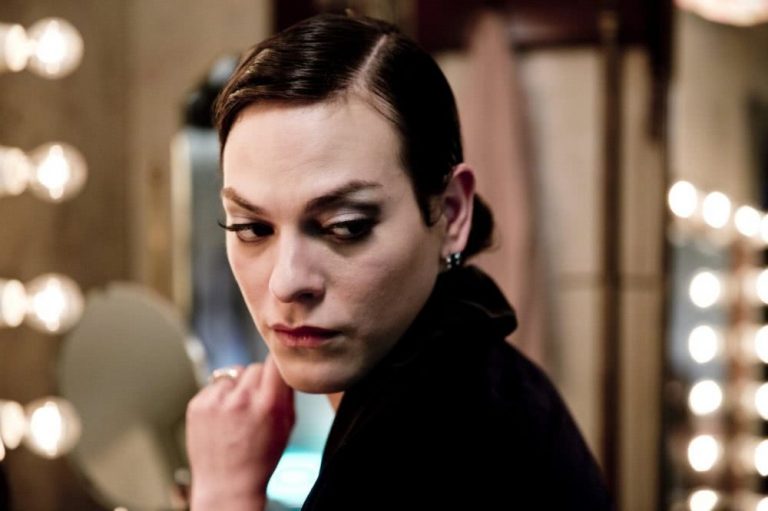A Fantastic Woman holds the unique, if unfortunate distinction, of being both an important and a distinctly disappointing film. It is, as the increasingly worn-out cliché goes, a movie for now – an important artistic statement about inclusion, acceptance, and self-love – that also so happens to sag under the weight of its aimless plotting and bizarre, useless transgressions.
It’s particularly disappointing given how strong the film starts. Opening with a bait and switch designed to suggest the elderly and charming Orlando (Francisco Reyes Morande) is A Fantastic Woman’s hero, writer-director Sebastian Leilo quickly switches gears and subs in his real protagonist, Orlando’s young partner Marina Vidal (expertly played by Daniela Vega).
Marina is a trans woman, and the light of Orlando’s life – they are planning to travel together, and later to settle down. But one night, Orlando falls ill, taking a tumble down a staircase, and before Marina – or the audience – have properly gotten a handle on the situation, Orlando has slipped into a coma and died.
Leilo deserves credit for so nimbly disposing of the most likeable male in his film.
Certainly Leilo deserves credit for so nimbly disposing of the most likeable male in his film: replacing Orlando with Marina neatly subverts audience expectations, and opens up A Fantastic Woman to explore an infinitely more interesting lead (played, thrillingly, by a trans woman, rather than the usual parade of cis actors mainstream audiences might be used to seeing play-acting queer onscreen.)
But, in his haste to write Orlando out of the picture, Leilo doesn’t give Marina any real time to grieve. She seems peculiarly unflustered by the loss, and finds herself forced to direct her energy into defending herself from slurs – and, later, physical violence – dished out by the police and Orlando’s discriminatory, close-minded and grieving family.
This is a beleaguered and bleary-eyed dud.
Such a creative choice makes sense on paper: Marina being denied the chance to properly mourn her partner is just one of the injustices she must face over the course of the film’s flabby running time. But it does mean the film lacks any coherent emotional throughline – because Marina doesn’t appear to care about Orlando, neither do we as audience members. Add a series of narrative dead-ends – sub-plots about Orlando’s dog, Marina’s sister, and Marina’s vocal coach go nowhere – and A Fantastic Woman quickly begins to drag.
It’s a shame. A film that makes as many stirring and important contextual choices as A Fantastic Woman should be something to celebrate; to cry from the rooftops about. Instead, this is a beleaguered and bleary-eyed dud. Oh well. Maybe next time?
A Fantastic Woman is in Australian cinemas now. Read another BRAG review on The Alienist here.


































